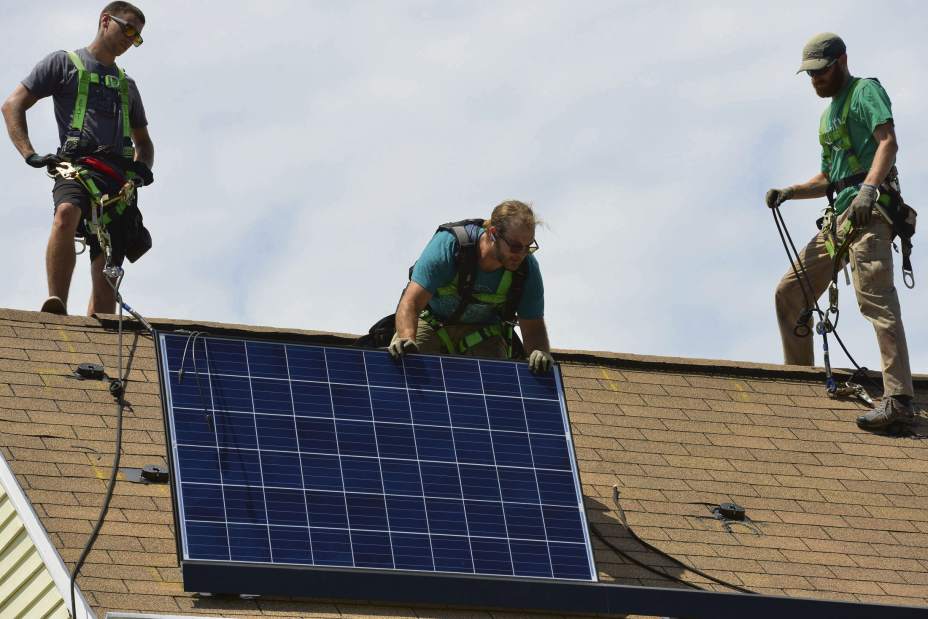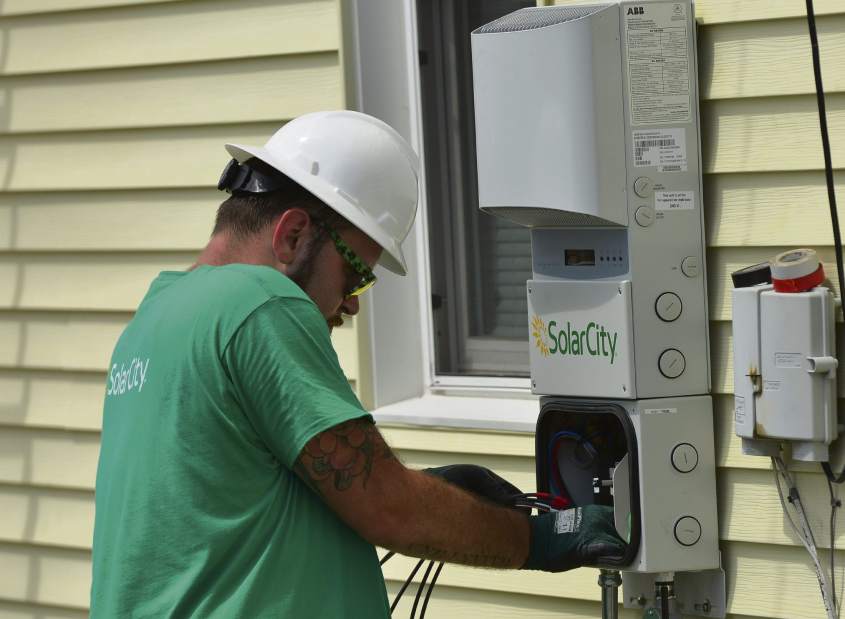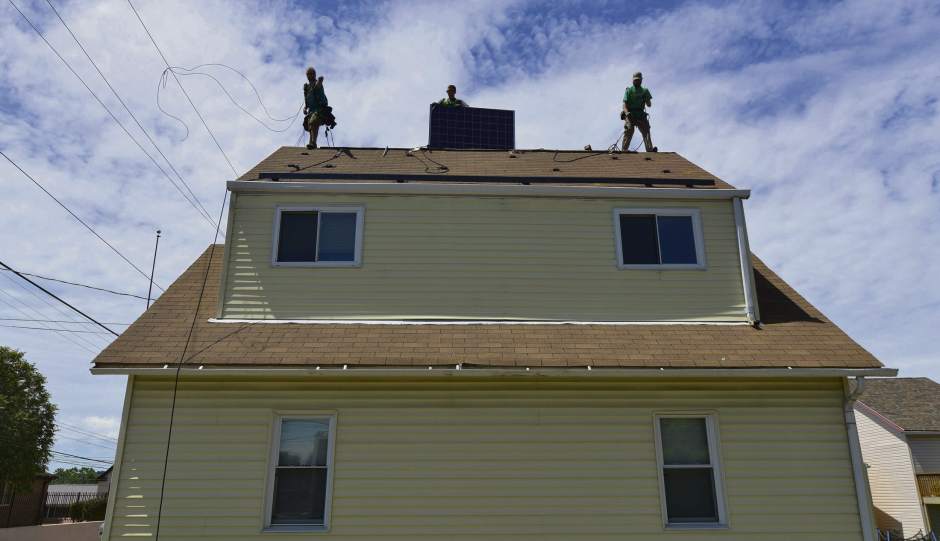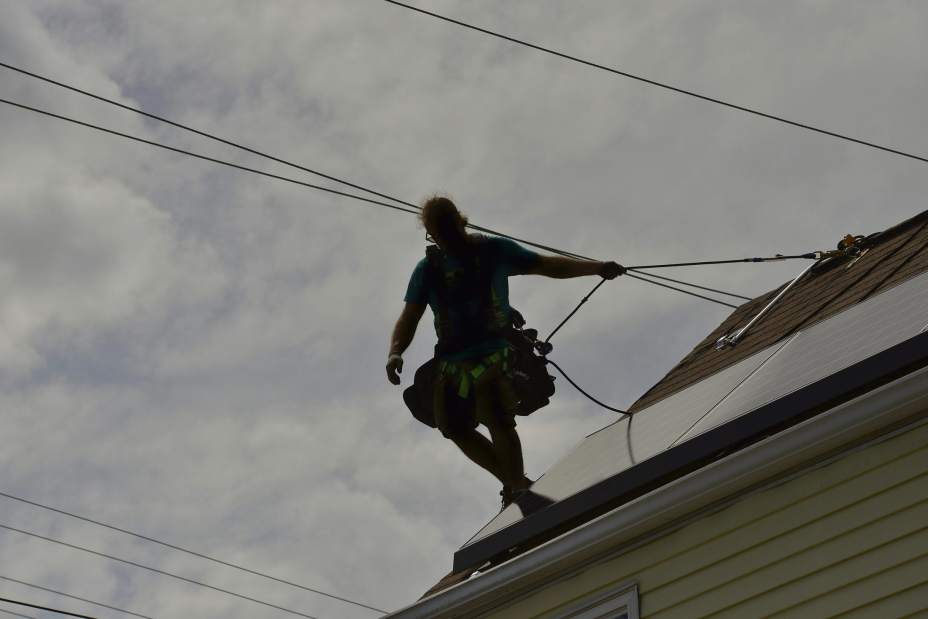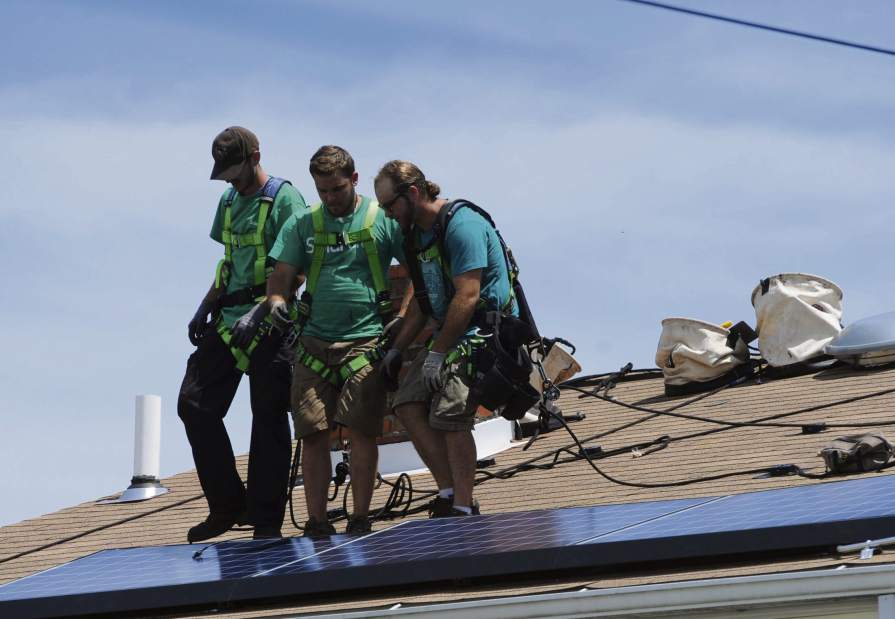SolarCity lease or power purchase plan cuts solar panel installation cost
Jerry and Marilyn O'Bruba lease an electric car, and they had thought for some time about adding solar panels to the West Mifflin home he bought from his parents.
They were interested in contributing to the larger environmental benefit of going solar, and in potentially saving money on their electric bill. But the upfront cost of buying a system — which generally costs tens of thousands of dollars, even with tax credits — loomed as a barrier, Jerry O'Bruba said.
Then Marilyn O'Bruba saw a sales rep in her neighborhood from SolarCity, the San Mateo, Calif.-based installer that in April started selling its unique financing program in the Pittsburgh area. Instead of asking customers to buy the panels and equipment, SolarCity owns the system it installs on homes, and customers either lease it or buy electricity from the company in a 20-year power purchase agreement.
“We like that option. It's not quite a lease, but similar,” said Jerry O'Bruba, 60. “There's no money involved in purchasing the system upfront.”
SolarCity has installed about two dozen rooftop systems across Pittsburgh in the three weeks since its installers put 36 panels on the O'Brubas' home, equaling about a third of the residential systems installed in Allegheny County in all of 2015.
“The reception here has been awesome,” regional operations manager Josh DuBois said last week as a crew installed a 21-panel system on a home in McKeesport.
SolarCity is among the most high-profile national solar power companies. Dubbed the Wal-Mart of solar by some local companies, it is backed by hundreds of millions of dollars from investors and is being courted by electric car and battery maker Tesla Motors, whose founder, Elon Musk, is the largest shareholder in SolarCity.
Local installers who do not offer the lease or power purchase agreement options were worried about whether SolarCity's arrival would push them out of what has been a small but growing market.
“We were initially concerned. But we aren't as concerned now,” said Joe Morinville, owner of Pittsburgh-based Energy Independent Solutions, which has sold and installed solar systems for 10 years.
Companies in other markets say they have seen a positive ripple effect from SolarCity's arrival, Morinville said, as sales crews and heavy marketing drive up interest in solar. Morinville says he is seeing that as potential SolarCity customers call his company for “second opinions.”
“I think it will lift up awareness of solar here,” said Sharon Pillar, president of the Solar Unified Network of Western Pennsylvania, or SUNWPA, an advocacy group. “We are hearing from people that they are getting multiple quotes from multiple installers.”
SolarCity, which is focused first on installing in electric utility Duquesne Light's footprint in Allegheny and Beaver counties, sees great opportunity in a market that has been slow to embrace solar. Pillar estimates Allegheny County has just 270 installed systems connected to the grid.
Its first crew of six local installers, led by a senior technician from Maryland, is booked through the middle of August with one job per day, DuBois said. The company was interviewing more workers who can be trained for additional teams as it sells more systems.
“We're looking to have three to four teams come September,” he said.
The 20-year lease and power purchase options are SolarCity's top selling point because it allows a potential customer with good credit to get a system without the large upfront payment. Both are based how much of a home's electrical use the system of panels can provide.
With a lease, the customer pays a monthly fee to SolarCity for a set amount of electricity from the panels. With the purchase agreement, the customer pays for each kilowatt hour produced by the panels, as if SolarCity were a separate provider.
“We create plans based on their normal bills ... and say, ‘Here's what we can save you,' ” DuBois said.
For the O'Brubas, who are waiting for final clearance from Duquesne Light to turn on their system, SolarCity estimated their panels would cover 78 percent of normal monthly use, at a lower per-kilowatt-hour rate.
“We just can't say how it's working yet. We have to be patient. But we're pretty excited,” Jerry O'Bruba said.
Morinville and Pillar encouraged people considering such a switch to look at all options and think about the implications of a 20-year agreement.
“There are some circumstances where I say, ‘This is a good deal for you,' ” Morinville said, noting someone who plans to stay in their home for 20 years can benefit from not paying money upfront. “You have to do your homework.
“I don't know if people understand the repercussions,” he said.
When a customer agrees to a purchase agreement, SolarCity attaches a filing to the title on the home because it owns the panels and system. That filing will need to be transferred if the home is sold. The company said it offers help for that process and will release the filing temporarily to allow for a clean title when the home is bought or sold.
O'Bruba said he hopes to stay in his home for at least the next 20 years.
“If we need to sell it, it would just be sold with the house,” he said.
David Conti is the assistant business editor at the Tribune-Review. Reach him at 412-388-5802 or dconti@tribweb.com.

